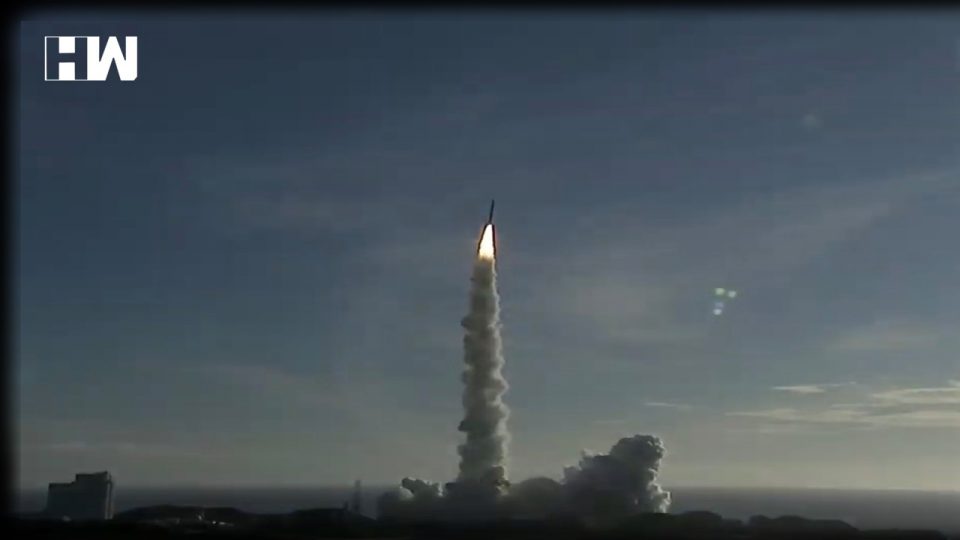The Emirati project is one of three racing to Mars, including Tianwen-1 from China and Mars 2020 from the United States
The First Arab space mission to Mars has blasted off aboard a rocket from Japan, with its unmanned probe called Al-Amal, or Hope successfully separating about an hour after liftoff.
A live feed of the launch showed the rocket carrying the probe lifting off from the Tanegashima Space Centre in southern Japan at 6:58 am (9:58 pm GMT). Almost exactly one hour later, the feed showed people applauding in the Japanese control room as the probe successfully detached.
In Dubai, the launch was met with rapturous excitement, with the UAE Mars mission’s deputy project manager Sarah al-Amiri declaring it “an indescribable feeling” to see the probe blasting off.
“This is the future of the UAE,” Amiri, who is also minister of state for advanced sciences, told Dubai TV from the launch site. The Emirati project is one of three racing to Mars, including Tianwen-1 from China and Mars 2020 from the United States, taking advantage of a period when the Earth and Mars are nearest.
In October, Mars will be a comparatively short 38.6m miles (62m km) from Earth, according to NASA. Hope is expected to reach Mars’s orbit by February 2021, marking the 50th anniversary of the unification of the UAE, an alliance of seven emirates.
Unlike the two other Mars ventures scheduled for this year, it will not land on the planet, but instead orbit it for a whole Martian year, or 687 days. While the objective of the Mars mission is to provide a comprehensive image of the weather dynamics in the red planet’s atmosphere, the probe is a foundation for a much bigger goal building a human settlement on Mars within the next 100 years.
The UAE also wants the project to serve as a source of inspiration for Arab youth, in a region too often wracked by sectarian conflicts and economic crises.
On Twitter, the UAE’s government declared the probe launch a “message of pride, hope and peace to the Arab region, in which we renew the golden age of Arab and Islamic discoveries.” Several dozen probes most of them American have set off for Mars since the 1960s. Many never made it that far or failed to land.
The drive to explore Mars flagged until the confirmation less than 10 years ago that water once flowed on its surface. Omran Sharaf, the mission’s project manager, has said the Hope probe will offer a special perspective on the elusive planet.
Sharaf told a pre-launch briefing, “What is unique about this mission is that for the first time the scientific community around the world will have an holistic view of the Martian atmosphere at different times of the day at different seasons.”
“We have a strategy to contribute to the global effort in developing technologies and science work that will help one day if humanity decides to put a human on Mars.”
As an independent media platform, we do not take advertisements from governments and corporate houses. It is you, our readers, who have supported us on our journey to do honest and unbiased journalism. Please contribute, so that we can continue to do the same in future.

